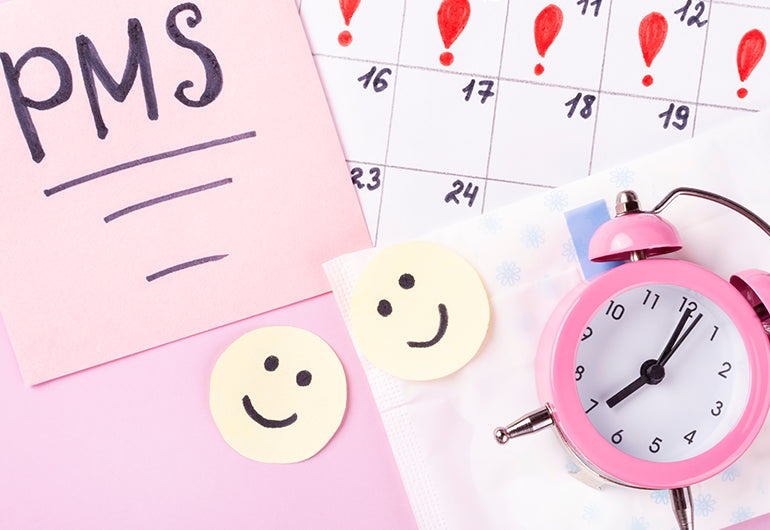
Navigating Through PMS: Expert Tips and Lifestyle Changes
PMS, or Premenstrual Syndrome, is a reality that many women aged 25-35 face every month. While it's a natural part of the menstrual cycle, it can sometimes feel like a rollercoaster of emotions and physical discomfort. But here's the empowering truth: you can take control of PMS by making some expert-backed lifestyle changes. In this blog, we'll guide you through it, Be Me style.

Understanding PMS
First things first, let's demystify PMS. It's not just mood swings and cravings; it's a complex interplay of hormonal shifts that can affect your physical and emotional well-being. From bloating to irritability, PMS symptoms can vary from person to person. Knowing your specific symptoms is the first step towards managing them.

Expert Tips for Managing PMS
1. Balanced Diet: Don’t underestimate the importance of a balanced diet. Give your body nutrient-rich foods like fruits, vegetables, whole grains, and lean proteins. Omega-3 fatty acids found in fish, flaxseeds, and walnuts can help reduce inflammation and ease PMS symptoms.
2. Stay Hydrated: Dehydration can worsen bloating and mood swings. Drinking plenty of water can help flush out excess salt and alleviate these symptoms.
3. Regular Exercise: Incorporate regular physical activity into your routine. Exercise releases endorphins, which can boost your mood and reduce pain and discomfort associated with PMS.
4. Mindful Relaxation: Practice relaxation techniques such as deep breathing, meditation, or yoga to manage stress and calm your mind.
5. Quality Sleep: Prioritize a good night's sleep. Poor sleep can exacerbate PMS symptoms. Try to aim for 7-9 hours of good quality sleep each night. This isn’t just good for PMS but everything!
6. Supplements: Some supplements like calcium, magnesium, and vitamin B6 have been shown to alleviate PMS symptoms. Consult a healthcare professional before adding supplements to your routine.
7. Herbal Remedies: Herbal teas like chamomile and ginger may help with menstrual cramps and relaxation. However, don’t forget to check with your doctor first before you start.

Lifestyle Changes for Empowerment
1. Track Your Cycle: Keeping a menstrual calendar helps you anticipate PMS symptoms. Apps like Clue or Flo can make this tracking easier.
2. Self-Care: Prioritize self-care during your premenstrual days. Take long baths, read your favorite book, or indulge in a spa day to pamper yourself.
3. Open Communication: Talk to friends and loved ones about your PMS. Supportive relationships can make a world of difference in how you navigate through it.
4. Seek Professional Help: If PMS severely impacts your daily life, don't hesitate to consult a healthcare provider. There are treatments and medications that can help manage severe PMS or PMDD (Premenstrual Dysphoric Disorder).
Remember, PMS is a part of your life, but it doesn't define you. By making informed choices and practicing self-care, you can empower yourself to handle it like a pro.



